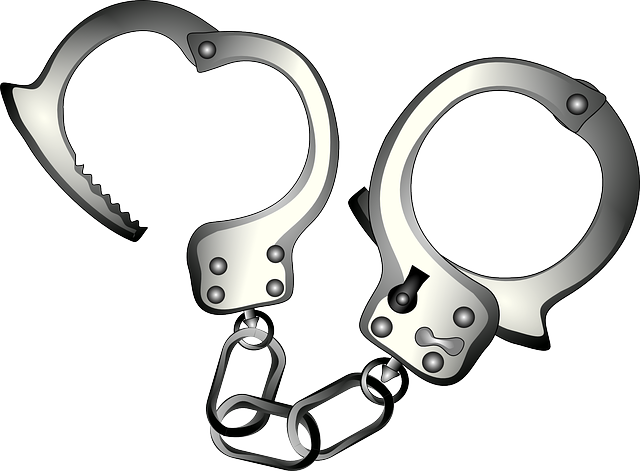The healthcare legal landscape is defined by intricate federal and state regulations, including HIPAA privacy, medical malpractice, and FDA drug approvals. Staying current with these laws is crucial for healthcare professionals to avoid criminal charges stemming from misconduct, such as medical errors or unethical practices. Effective Criminal Trial Jury Selection Strategies are vital for defending healthcare providers against accusations, ensuring fair trials, and protecting patient safety by mitigating liability risks. Notable legal disputes have led to significant changes in industry practices, policies, and regulations, emphasizing the profound impact of strategic jury selection.
Navigating the healthcare legal landscape is a complex task, with a web of regulations and potential pitfalls. This article delves into critical aspects shaping the industry’s legal framework. From understanding the intricate overview of relevant laws to exploring unique challenges in jury selection strategies, we uncover key considerations for medical professionals. Additionally, we examine criminal trials, ethical dilemmas, and notable case studies, providing insights into the delicate balance between patient protection and professional liability. Effective jury selection strategies are essential, especially given the high-stakes nature of healthcare disputes, including criminal trials.
- Understanding Healthcare Legal Landscape: An Overview of Relevant Laws and Regulations
- Criminal Charges in Healthcare: When and How Medical Professionals Face Trial
- Jury Selection Process for Healthcare Cases: Unique Considerations and Challenges
- Ethical Dilemmas and Professional Liability: Protecting Patients and Healthcare Providers
- Case Studies: Notable Healthcare Legal Disputes and Their Impact on the Industry
Understanding Healthcare Legal Landscape: An Overview of Relevant Laws and Regulations

Understanding the healthcare legal landscape involves navigating a complex web of federal and state laws, regulations, and ethical guidelines designed to protect patients and ensure quality care. These include regulations governing patient privacy (HIPAA), informed consent, medical malpractice, and regulatory bodies like the FDA that oversee drug approvals and device safety. For healthcare professionals, staying abreast of these evolving laws is crucial for compliance and mitigating potential legal risks.
While criminal trials and jury selection strategies may seem unrelated, they play a significant role in understanding the broader legal landscape. Cases involving medical malpractice or negligence can lead to criminal charges, particularly when there’s evidence of reckless disregard for patient safety. Winning challenging defense verdicts in these scenarios requires robust legal strategies aimed at demonstrating due care, avoiding indictment, and achieving a complete dismissal of all charges where appropriate.
Criminal Charges in Healthcare: When and How Medical Professionals Face Trial

When medical professionals face allegations of misconduct or criminal activity, they may find themselves facing a criminal trial, a serious event that can significantly impact their careers and reputations. Criminal charges in healthcare are typically pursued when actions violate legal standards and cause harm to patients or raise concerns about public safety. These cases often involve complex scenarios, such as medical errors, fraud, or unethical practices, which require thorough investigation. The process begins with law enforcement conducting an initial inquiry, gathering evidence, and determining if there’s sufficient ground for charges.
If a grand jury finds enough evidence to support the allegations, they will return an indictment, leading to a criminal trial where the medical professional’s guilt or innocence is determined. Jury trials in healthcare cases are pivotal, as they ensure fairness and allow both sides to present their arguments. During these trials, strategic jury selection becomes crucial for both the prosecution and defense. Understanding corporate and individual clients’ rights and employing effective jury selection strategies at all stages of the investigative and enforcement process are essential to achieving a just outcome, ultimately shaping the future of medical professionals facing legal repercussions.
Jury Selection Process for Healthcare Cases: Unique Considerations and Challenges

The jury selection process in healthcare cases presents a unique set of considerations and challenges distinct from those seen in other types of criminal trials. In these highly technical and often emotionally charged scenarios, potential jurors must possess not only the ability to understand complex medical concepts but also the sensitivity to grapple with sensitive patient information. This meticulous screening is crucial to ensure fair and informed jury trials across the country.
Effective Criminal Trial Jury Selection Strategies for healthcare cases involve rigorous questioning to gauge candidates’ background knowledge of medicine, their capacity for empathy, and their ability to set aside personal biases. Jurors are evaluated not only on their understanding of medical principles but also on their receptiveness to expert testimony and their capacity to make decisions based solely on the evidence presented, rather than emotional responses or preconceived notions about healthcare practices. This meticulous process is essential to safeguard the respective business interests of healthcare providers while ensuring justice for patients and their families in jury trials.
Ethical Dilemmas and Professional Liability: Protecting Patients and Healthcare Providers

In the intricate landscape of healthcare law, ethical dilemmas present significant challenges for professionals. As patient care becomes increasingly complex, healthcare providers must navigate a web of responsibilities while upholding moral standards. One critical aspect is ensuring patient autonomy and consent, especially in situations where treatment options are limited or controversial. For instance, a healthcare provider might face an ethical dilemma when a patient requests a treatment with unproven benefits, weighing the patient’s right to make informed choices against potential harm.
Professional liability is another crucial consideration. Healthcare providers must be vigilant to avoid negligence, as it can lead to severe consequences in court. Jury trials play a significant role here, especially in cases involving complex medical decisions. Skilled attorneys employing effective criminal trial jury selection strategies can help ensure that healthcare providers are protected from unjust accusations. An unprecedented track record of successful defense for his clients in such matters is vital in fostering trust and maintaining the high standards of care upon which patient safety relies.
Case Studies: Notable Healthcare Legal Disputes and Their Impact on the Industry

Notable healthcare legal disputes have left an indelible mark on the industry, shaping practices and policies in significant ways. One prominent case involves a white-collar defense strategy where a pharmaceutical company was accused of misbranding and marketing practices that led to patient harm. Through masterful criminal trial jury selection strategies, the defense secured a not-guilty verdict, demonstrating the power of meticulous planning and understanding of the jury’s perspective. This outcome underscored the importance of ethical marketing and drug labeling regulations, forcing industry-wide changes.
Another significant dispute centered around data privacy breaches at a major healthcare provider. The case, with its focus on protecting patient records, led to stricter corporate and individual client privacy laws. While the initial lawsuit did not yield a direct win in court for the plaintiffs, it catalyzed legislative actions resulting in enhanced security measures and greater accountability for data protection, ultimately benefiting patients and their legal rights.
The complex healthcare legal landscape, encompassing a web of regulations, criminal trials, and ethical guidelines, demands careful navigation. From understanding the intricacies of jury selection strategies for medical cases to addressing pressing ethical dilemmas, this article has illuminated critical aspects. As seen in notable case studies, healthcare legal disputes significantly shape industry practices. By staying informed about relevant laws and fostering open dialogue, professionals can mitigate risks, protect patients, and ensure a fair and just healthcare system, ultimately enhancing the quality of care delivered.






